Spatial awareness Numbers Worksheets for Ages 4-9
6 filtered results
-
From - To
Discover engaging Spatial Awareness Numbers Worksheets designed for children aged 4-9, available at Kids Academy. These expertly crafted resources help young learners develop crucial spatial awareness skills by connecting numbers with fun activities. Through various interactive exercises, kids enhance their ability to visualize and understand number relationships and positions. Perfect for both classroom and home use, these worksheets provide a solid mathematical foundation, fostering confidence and a love for learning. Visit Kids Academy to explore our full collection and unlock your child's potential with these essential early math tools.
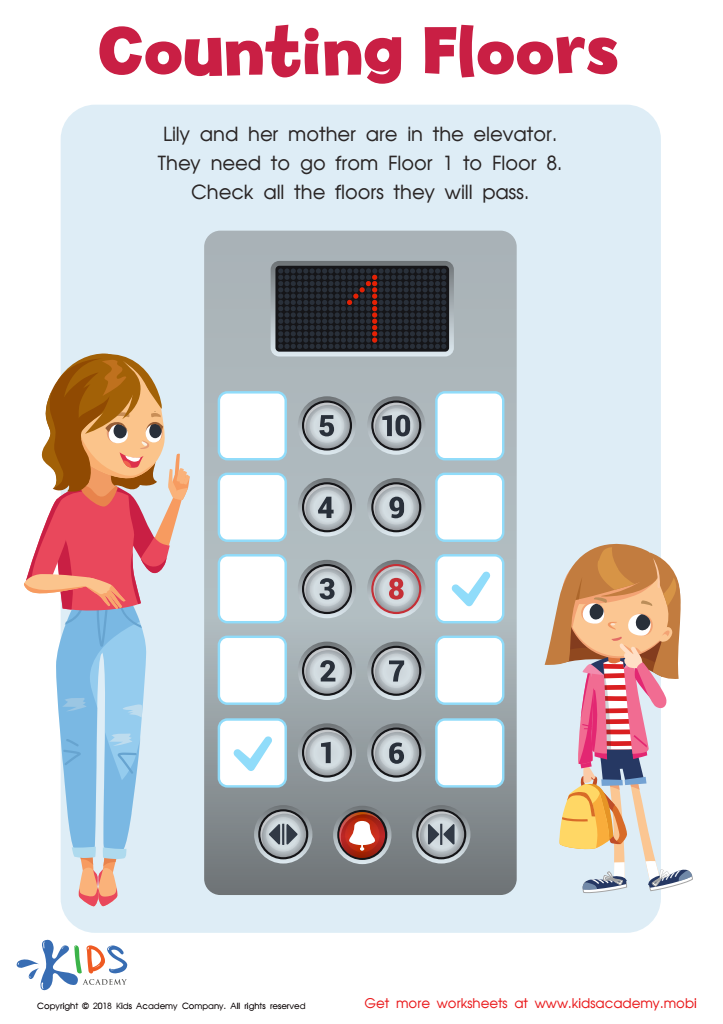

Counting Floors Worksheet
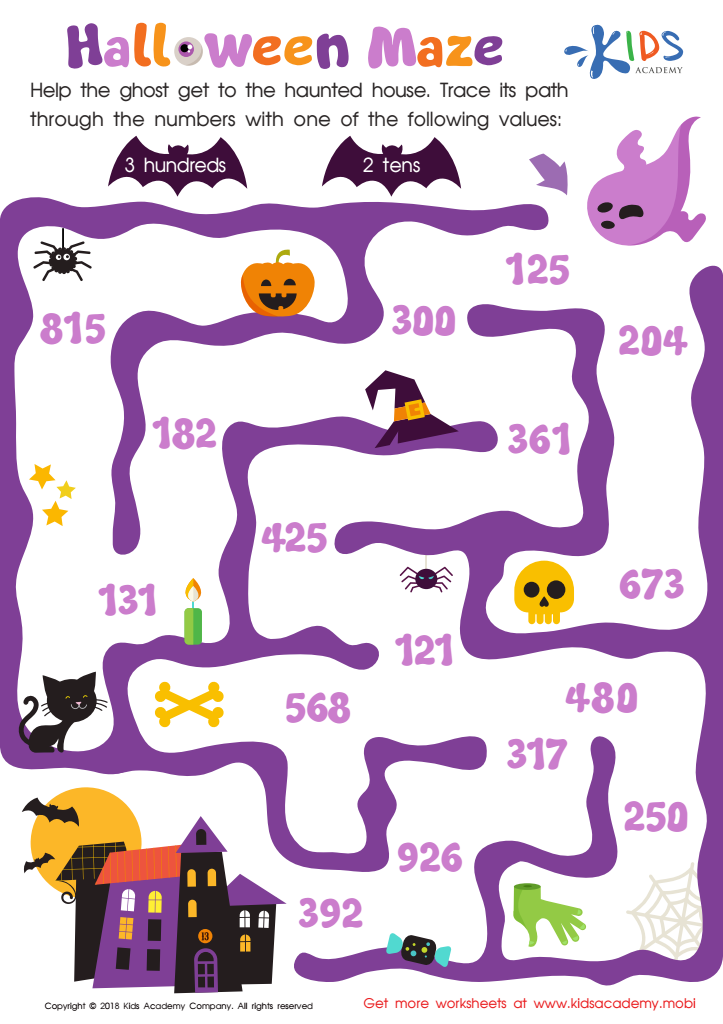

Place Value: Halloween Maze Worksheet
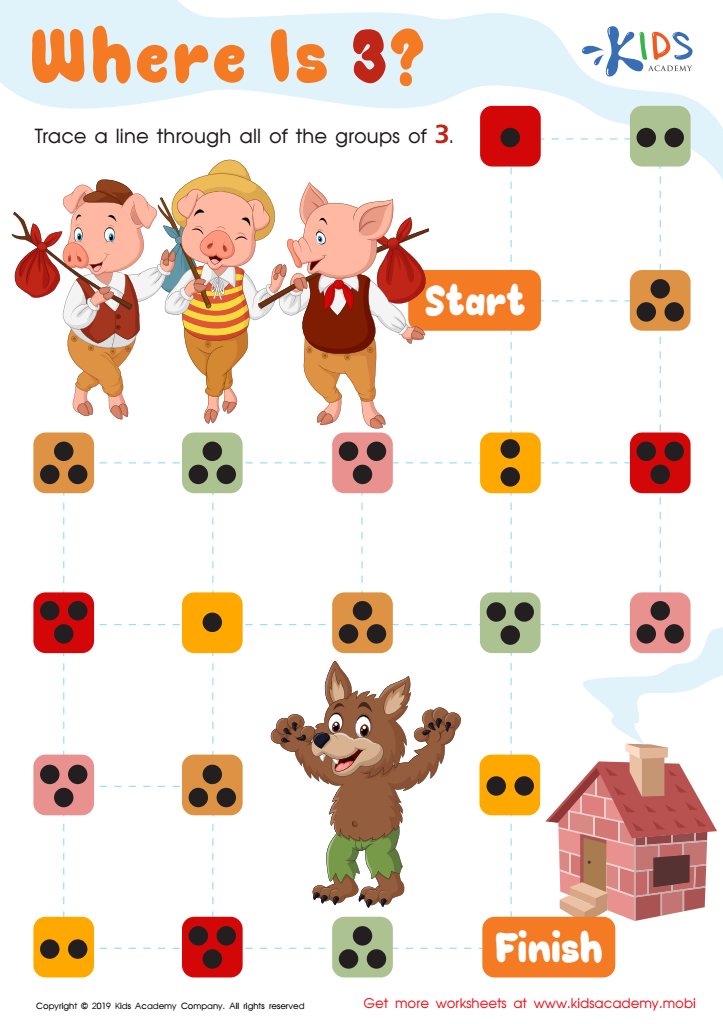

Where Is 3? Worksheet
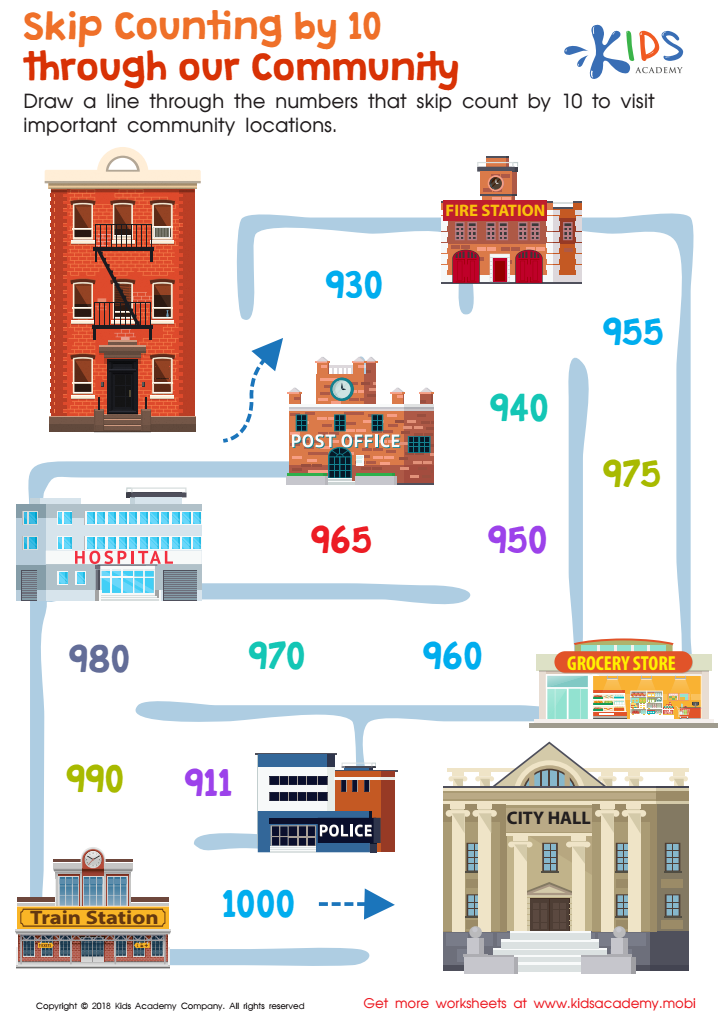

Skip Counting by 10 Through Our Community Worksheet
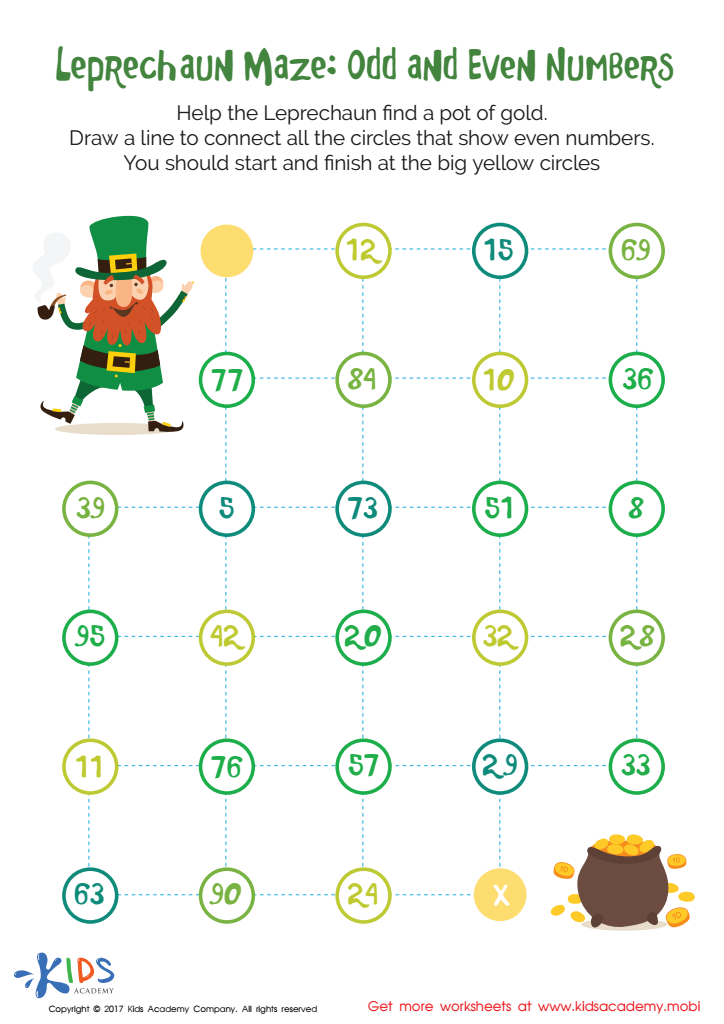

Leprechaun Maze Printable
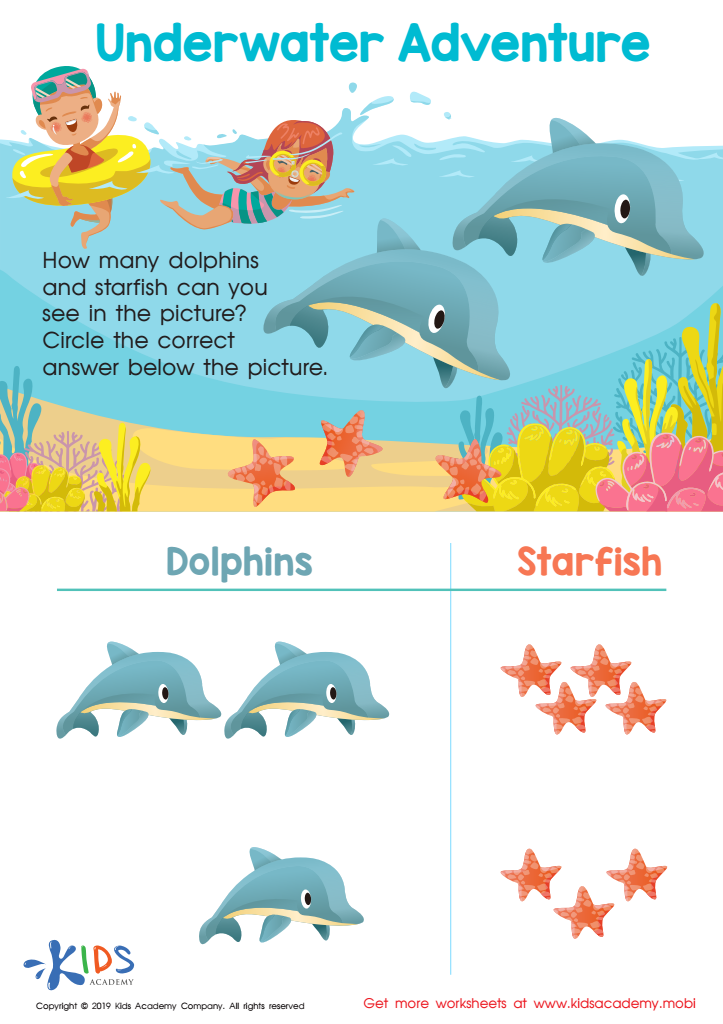

Underwater Adventure Worksheet
Spatial awareness and understanding numbers are crucial for children's development, particularly for ages 4-9, as they form the foundational skills for later academic success and everyday functioning.
Spatial awareness—the ability to understand and interact with the physical space around us—is essential for tasks like reading and writing. It helps children navigate their world, understand directionality (left vs. right), and develop hand-eye coordination. These skills facilitate learning to read, as children need to track words across a page and understand letter and word spacing. In math, spatial skills help in recognizing patterns, understanding geometry, and solving problems involving shapes and spaces.
Numbers are the building blocks of math. Early numeracy encompasses more than just counting; it involves recognizing numbers, understanding their magnitudes, and grasping basic concepts like addition and subtraction. Children proficient in early numeracy are better prepared for complex mathematical concepts later on, such as multiplication and division.
Together, spatial awareness and early numeracy contribute to cognitive development, logical thinking, and problem-solving abilities. They are interlinked; for instance, placing objects in order or matching quantities to numbers involve both spatial awareness and number sense. By valuing and encouraging these skills, parents and teachers set a strong academic foundation and support overall brain development, preparing children for future learning and everyday tasks.
 Assign to My Students
Assign to My Students















